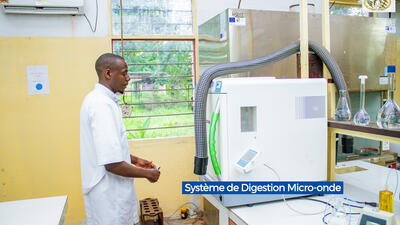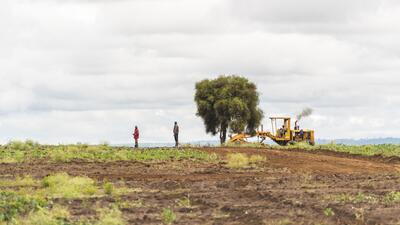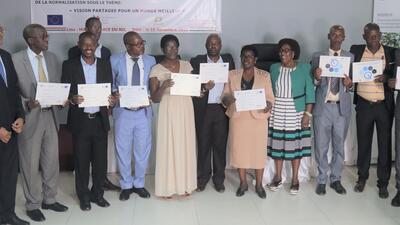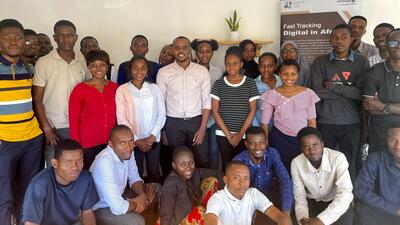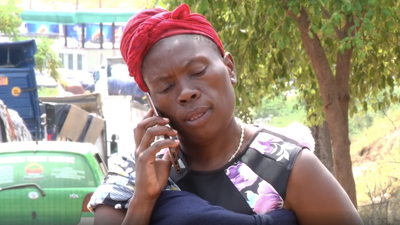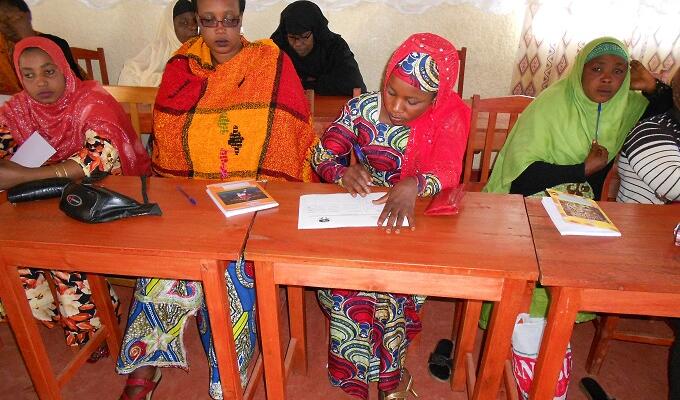
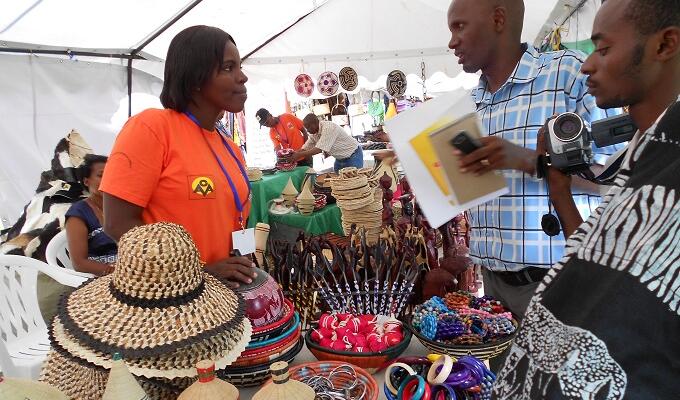
Crossing the border into formal trade, earning higher incomes
Amida Uwingabire – a 34-year-old single mother from Muyinga, Burundi – has come a long way from her days of having $10 in her pocket to banking $13,000.
The defining moment was when she transitioned from informal to formal cross-border trade.
‘I was an informal trader, committing fraud and considered a “thief”, without a tax number or any sort of registration,’ she said. ‘Thanks to ITC, I am now proud to work legally. Now, it is my turn to spread the word about the benefits of working legally.’
Through her involvement in women’s associations and participation in training workshops led by the International Trade Centre (ITC) and the Association of Women Entrepreneurs of Burundi, Uwingabire gained the knowledge and skills to transition into formal trade.
She learned about the benefits of being listed in a trade register, having a Tax Identification Number and partnering with other women traders. She also received training on border procedures and taxation.
‘I believe that being an independent and officially registered woman trader is a big leap for me,’ she said. ‘I protect my goods and I trade across borders in a transparent and safe way.’
The informal sector contributes about 55% of sub-Saharan Africa’s gross domestic product and 80% of the labour force, according to the African Development Bank . Nine in 10 workers in Africa have informal jobs.
Yet the women who make up the majority of such traders are vulnerable at borders to extortion, verbal and physical harassment and even assault. For governments, informal trade by definition escapes taxation and regulation.
‘I was working alone and losing a lot of money,’ said Uwingabire, who used to sell tomatoes. ‘The country was also losing money because of corruption. I wasn’t transparent about my trade activities. I worked at night with all the risks that this entails for a woman.’
Since entering formal trade, Uwingabire has moved to selling higher value-added goods, including processed food and clothing, in the neighbouring countries of Rwanda, Uganda and the United Republic of Tanzania.
Uwingabire is one of the hundreds of women involved in informal cross-border trade who participated in an ITC project designed to help them transition into formal trade.
As part of the project, representatives of women’s associations participated in international trade fairs to meet potential buyers, build their business networks and make sales.
A group of women traders presented their value-added products – including cassava flour, palm oil, packed sardines and handicrafts – at the Dar es Salaam International Trade Fair 2016 this summer. They made initial sales and connected with nearly 200 contacts for future sales.
Bertha Matanwa and Olivetha Mvunyenge – members of the Manyovu-based women’s association – were among participants in the trade fair. By working through the association, they have been able to do business in a transparent and legal way. Through collective marketing, they have received a trading license from their district. They can fulfil trade compliance with a collectively acquired license, Tax Identification Number and Simplified Certificate of Origin, on the basis of which they make required payments, including taxes.
Women who have received support through the ITC project report reduced border costs, higher profits and greater capacity to manage cross-border transactions.
For example, Akoth Josephine and Nabafu Zula, representatives of the Busia Women Cross Border Traders Association in Uganda, learned through ITC training workshops that for products to be competitive in local and regional markets, they must be branded, labelled and well packaged, featuring key information on nutrition values.
Nineteen associations of women traders are now better able to provide support services at the border. These associations have enabled the traders to share concerns with border agencies and influence policy discussions related to cross-border trade.
‘I want to share my success story in Burundi so it can be replicated elsewhere,’ Unwingabire said. ‘I’ve clearly improved my financial situation, my work and my life. I will continue working in trade.’
ITC is looking to expand this initiative to other eastern and southern African countries, providing capacity building, increasing support for women traders, improving relations with border agencies and creating new business opportunities for trade across the region.





